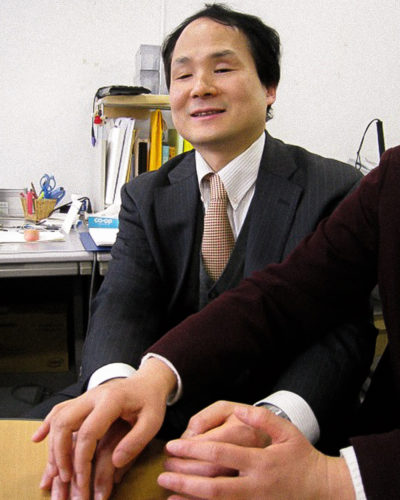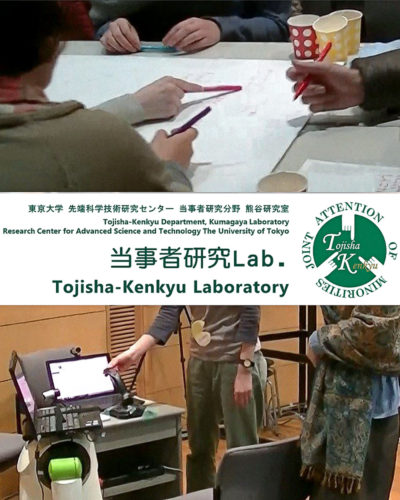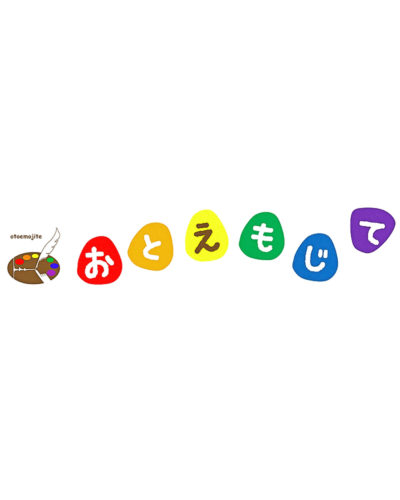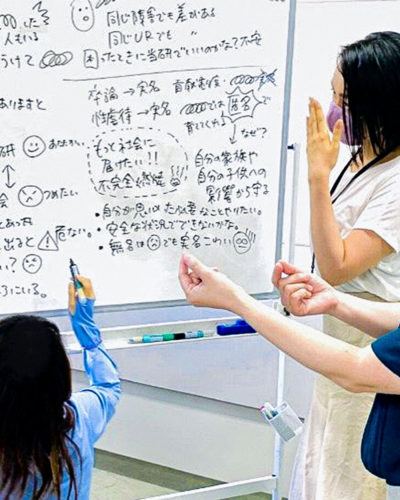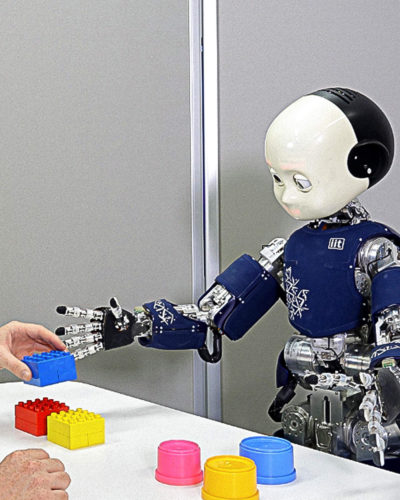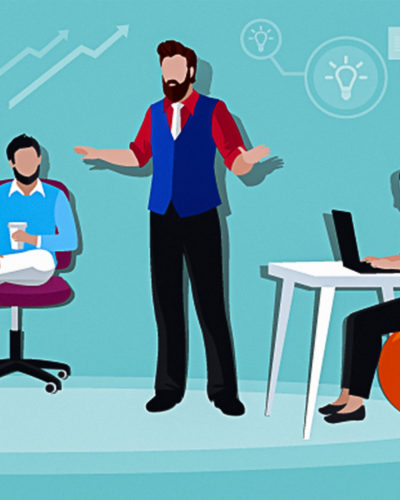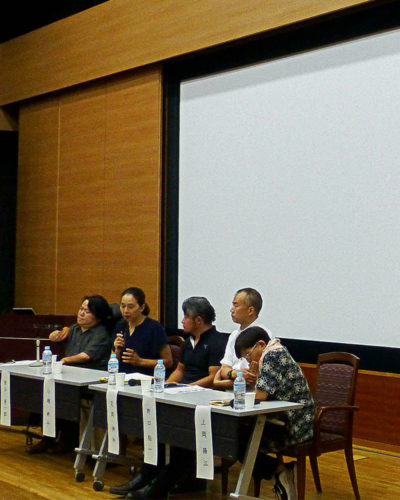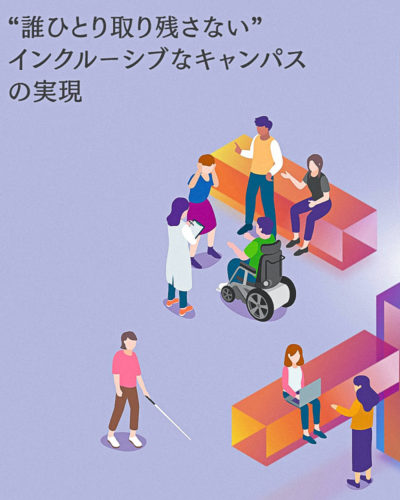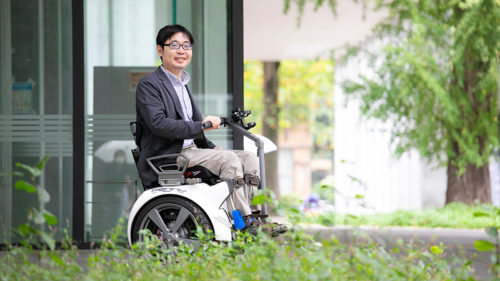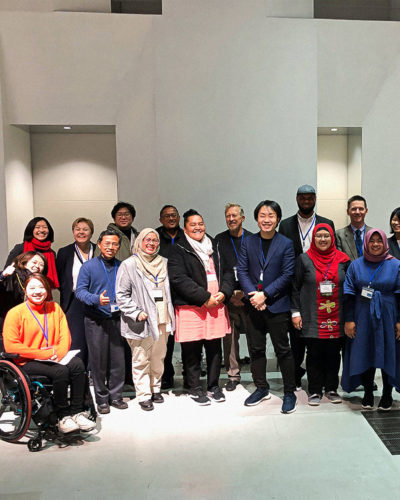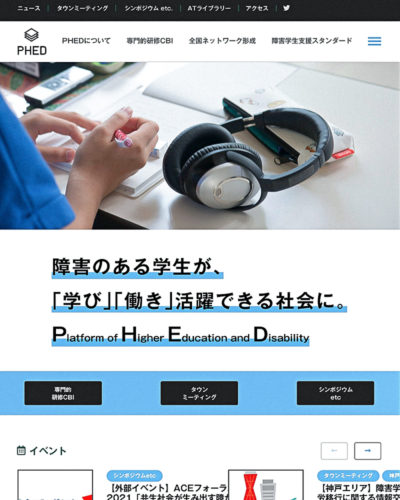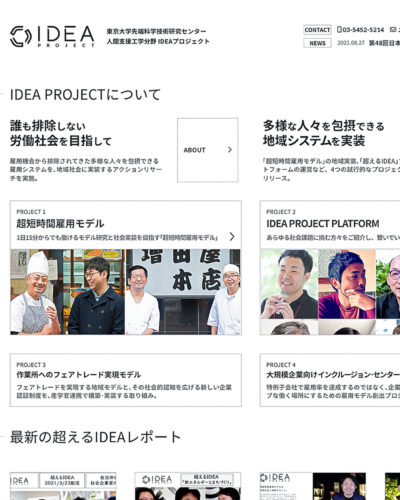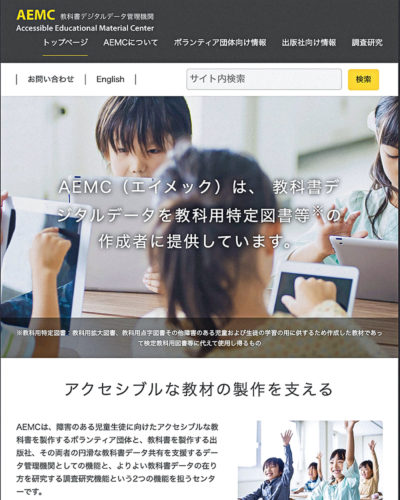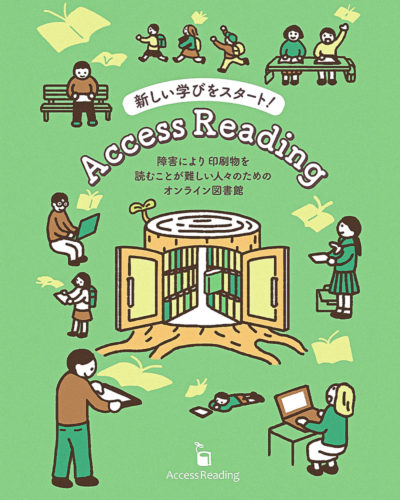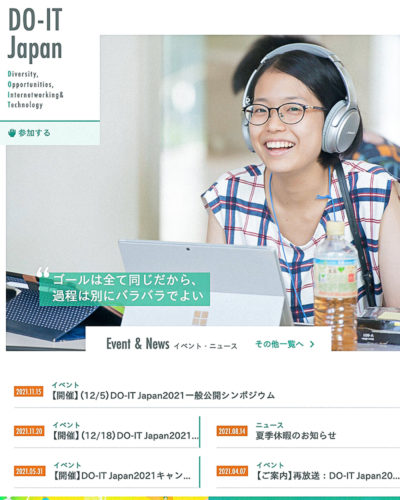History of
Barrier-Free Research in Japan and at the Research Center for Advanced Science and Technology (RCAST)
Since the barrier-free domain of the Research Center for Advanced Science and Technology (RCAST) was established in 2001—under the concepts of integrating the humanities and sciences, bringing research subjects into the research process, and industry-academia collaboration—we have been tackling social challenges through inclusive research processes that incorporate the perspectives of the research subjects themselves.
Swipe sideways to see more.
History in Japan
History at RCAST
-
-
-
1947
- Institutionalization of schools for the blind, deaf, and physically/mentally challenged, and special education classes
-
-
-
-
-
1970
- Independent living movement for people with disabilities, advocacy movement for patients with rare and intractable diseases
-
-
-
-
-
1979
- Compulsory system of schools for children with disabilities introduced
-
-
-
-
-
1980
- Mental health recovery movement
-
-
-
-
-
1993
- Institutionalization of special-needs support while attending mainstream class
-
-
-
-
-
2000
- Tojisya-kenkyu started
-
-
-
-
-
2001
- Barrier-free Laboratory of the Barrier-Free Research categories established
-
-
-
-
-
2002–2006
- Super COE “Barrier-Free Project” executed
-
-
-
-
-
2005
- Assistive Technology Laboratory established
-
-
-
-
-
2006
- Convention on the Rights of Persons with Disabilities adopted
-
-
-
-
-
2007
- Special needs education system introduced
-
-
-
2007
- DO-IT Japan started
-
-
-
-
-
2010
- Co-production in disabilities research started
-
-
-
2010
- Maho Project
-
-
-
-
-
2012
- Central Council for Education’s “Inclusive Education System” introduced
-
-
-
-
-
2013
- Act for Eliminating Discrimination against Persons with Disabilities enacted , Act to Facilitate the Employment of Persons with Disabilities amended
-
-
-
-
-
2014
- ROCKET, AccessReading, AHEAD JAPAN estabilished
-
-
-
-
-
2015
- IDEA project started
-
-
-
2015
- Tojisha-kenkyu Laboratory established
-
-
-
-
-
2016
- Act for Eliminating Discrimination against Persons with Disabilities comes into effect
- Act on Securing Educational Opportunities Equivalent to Ordinary Education at the Stage of Compulsory Education established
-
-
-
-
-
2017
- PHED started
-
-
-
-
-
2018
- User-Researcher System introduced
-
-
-
-
-
2020
- Inclusive Academia Project started
-
-
-
-
-
2021
- Act for Eliminating Discrimination against Persons with Disabilities amended
-
-
-
2021
- CORBIE started
-
-
-
-
-
2022
- Iinclusion Ssystem Laboratory established
-
-
Swipe sideways to see more.
Co-productive Research Projects
We bring to light issues in society and propose solutions through co-production of self-support research, which emerges out of the “lived experiences” of those who have been left behind in society, as well as practical study based on implementation of interdisciplinary action research aimed at solving social issues.
-
fukushima researches no.01
Research aimed at making people and society more accessible from the point of view of people with disabilities
Barrier-free Laboratory
Fukushima Laboratory -
kumagaya researches Kumagaya Research No. 6
Studying our own problems as research themes
Tojisha-kenkyu Laboratory
Kumagaya Laboratory -
kumagaya researches Kumagaya Research No. 5
A tojisha-kenkyu group for people with neurodiversity, by people with neurodiversity
Tojisha-kenkyu Laboratory
Kumagaya Laboratory -
kumagaya researches no.04
From involvement to centrality: Research only “we” can do
Tojisha-kenkyu Laboratory
Kumagaya Laboratory -
kumagaya researches no.03
Participatory research on autism spectrum disorder
Tojisha-kenkyu Laboratory
Kumagaya Laboratory -
kumagaya researches Kumagaya Research No. 2
Inclusive workplaces where everyone plays an important role
Tojisha-kenkyu Laboratory
Kumagaya Laboratory -
kumagaya researches no.01
The overlooked difficulties of athletes, and what we can learn from them
Tojisha-kenkyu Laboratory
Kumagaya Laboratory -
kumagaya ・ namiki researches Kumagaya & Namiki Research No. 3
Working together to build a campus for all
Tojisha-kenkyu Laboratory
Kumagaya ・ Namiki Laboratory -
namiki ・ kumagaya researches Namiki & Kumagaya Research No. 2
Barrier-free laboratories
Inclusive Design Laboratory
Namiki ・ Kumagaya Laboratory -
namiki ・ kumagaya researches Namiki & Kumagaya Research No. 1
Tools to support constructive dialogue
Inclusive Design Laboratory
Namiki ・ Kumagaya Laboratory -
kondo researches Kondo Research No. 6
Sharing what’s new in support for students with disabilities across Asia and the Pacific Rim
Social Inclusion Systems Laboratory
Kondo Laboratory -
kondo researches Kondo Research No. 5
Building communities where students with disabilities can “learn” and “work,” and play active roles
Social Inclusion Systems Laboratory
Kondo Laboratory -
kondo researches Kondo Research No. 4
Creating local models to generate decent work starting from as little as 15 minutes a week
Social Inclusion Systems Laboratory
Kondo Laboratory -
kondo researches Kondo Research No. 3
Supporting the production of accessible textbooks
Social Inclusion Systems Laboratory
Kondo Laboratory -
kondo researches Kondo Research No. 2
Delivering books and textbooks accessible to all
Social Inclusion Systems Laboratory
Kondo Laboratory -
kondo researches Kondo Research No. 1
Helping young people with disabilities grow into leaders
Social Inclusion Systems Laboratory
Kondo Laboratory
Inception of the RCAST Barrier-Free Rresearch categories
-
2001: Barrier-Free Laboratory of the barrier-free categories established
-
2002–2006: Super COE “Barrier-Free Project” executed
-
Concept: Integration of the humanities and sciences, participation of subject as researchers, industry-academia collaboration
-
Four research clusters:
- Philosophy and ideology of disability studies
- User-centered design systems
- User-centered assistive design (assistive technology)
- Industry-academia collaboration
-
The goal at the time was to create a barrier-free human sciences research center.
-
Tojisha-kenkyu Laboratoy
-
- 2012–2017 Tojisha-kenkyu on autism spectrum disorder fully launched as Scientific Research on Innovative Areas
- 2015 Tojisha-kenkyu Laboratoy established
- History, theory, and methodology for tojisha-kenkyu developed
- Tojisha-kenkyu implemented
- Mental disorders, autism spectrum disorder, addiction, chronic pain, secondary disorders caused by cerebral palsy, special needs classrooms, dementia,
- teachers, parenting, university students, businesses, university faculty, psychiatrists, government officials, athletes, women’s prisons, etc.
- Co-production implemented
- International collaboration
-
2020 Inclusive Academia Project started
-
2022 Social inclusion system domain established
